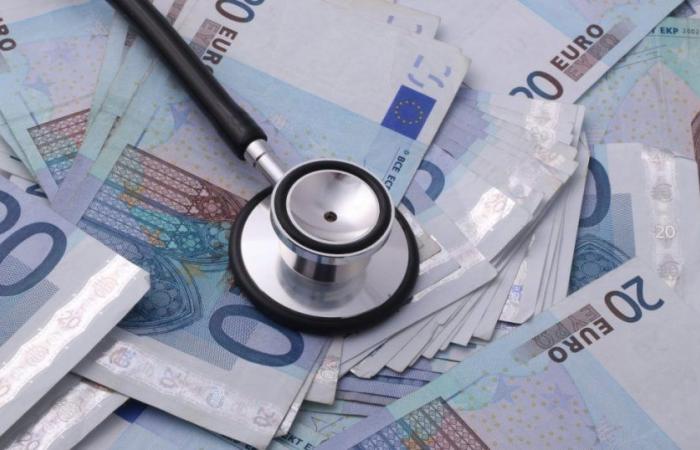EU4Health ambitions and achievements
With an unprecedented budget of 5.3 billion euros, the EU4Health program represents a strong commitment from the European Union to public health, in particular in response to the COVID-19 crisis, which has highlighted the weaknesses and disparities in national health systems.
The ambitious objectives of EU4Health, as defined by Regulation (EU) 2021/522, aim to create a more equipped Europe robust in the face of health challenges. The program is structured around four main axes: the improvement and promotion of health, the protection of citizens against cross-border health threats, the strengthening of health systems and their personnel, and the facilitation of access to care and medical products.
As part of health promotion and disease prevention, the program has funded innovative projects such as the Inclusive Healthy Lifestyle Groups in Schools (IHLGiS) program which encourages young people to adopt a healthy lifestyle, thus attacking the roots of many long-term health problems.
At the center of the EU4Health program is the fight against cancer, a scourge which affects millions of Europeans each year. The European Cancer Plan, launched in February 2021, benefits from considerable funding of 4 billion euros, of which 1.25 billion comes directly from EU4Health. Ambitious projects like CAN.HEAL, INTERACT EUROPE, and TOGAS (Towards Gastric Cancer Screening Implementation) demonstrate the EU’s commitment in this area. These initiatives aim to improve prevention, early detection and care pathways for cancer patients, thereby helping to reduce health inequalities between member countries.
The COVID-19 pandemic has highlighted the need for better European coordination in the face of cross-border health threats. With this in mind, EU4Health funds essential initiatives, such as joint action on antimicrobial resistance (AMR), a growing public health problem that knows no borders. The EPIC11 preparedness training program aims to strengthen the capacity of health systems to respond effectively to future health crises. Furthermore, the EU-WISH wastewater surveillance program represents an innovative approach to detect the early presence of pathogens in the population, thus enabling a rapid response in the event of an outbreak. The creation of a European Health Data Space (EHDS), a fundamental pillar of Europe’s health, facilitates the secure exchange of health data between member countries, thus opening new perspectives for medical research and improvement of care. The EHDS aims to enable the primary and secondary use of health data, crucial for the development of innovative and personalized medicines. This initiative could revolutionize the way healthcare is provided in Europe, by allowing healthcare professionals to quickly access patients’ medical histories, regardless of their country of origin.
Obstacles to a unified European health system
Despite these significant advances, the creation of a truly united European health system faces many obstacles. Indeed, the disparities between national health systems constitute a major challenge: each Member State has developed its own system over the decades, with methods of financing, organization and priorities which can vary considerably. Harmonizing these systems while respecting the principle of subsidiarity remains a complex task, requiring constant dialogue and compromises between member countries.
The question of national sovereignty in health matters is a sensitive point. Health remains largely a national competence, limiting the EU’s ability to impose uniform measures. Member States, keen to maintain their autonomy in this crucial area, may be reluctant to cede too much power at the European level. This tension between the ambition for a coordinated European approach and the desire to preserve national autonomy constitutes an ongoing challenge for the advancement of a European Health Union.
On a technological level, the implementation of EHDS raises complex questions in terms of data security and interoperability of IT systems. As participants at the 2024 EU4Health conference highlighted, “there is a need to improve the implementation of the EHDS Regulation and support Member States to become more involved. » The protection of particularly sensitive personal health data must be guaranteed, while allowing their use for research purposes and improvement of care. Reconciling these imperatives remains a major technical and ethical challenge.
Then, economic inequalities between Member States are inevitably reflected in their capacities to invest in their health systems and to participate fully in European initiatives. Less economically advantaged countries may find it difficult to implement certain measures or finance their share of joint projects, which risks further widening health gaps within the EU. Reducing these disparities requires a delicate balance between European solidarity and national responsibility.
Finally, resistance to change within national health systems also constitutes an obstacle to European integration in this area. Health systems, often rooted in long-standing traditions and practices, can be slow to adopt new approaches or technologies. Healthcare professionals, administrations and even patients may be reluctant to change well-established practices, which can slow down the implementation of European initiatives.
Future prospects and challenges ahead
Despite these obstacles, the EU continues to move towards greater health integration. The expansion of the EU4Health program to non-EU countries, the accession of Bosnia-Herzegovina and Montenegro in 2024, demonstrates a desire to extend its influence beyond the borders of the EU. Union. As Bosnian Minister of Civil Affairs Dubravka Bosnjak pointed out: “This is a great opportunity for us to modernize and improve our healthcare system and bring us closer to European standards. »
EU4Health’s ability to respond quickly to emerging challenges is also demonstrated by targeted initiatives, such as the €4 million project launched in December 2023 to improve access to care for Ukrainian refugees in ten European countries. This type of action illustrates the flexibility of the program and its ability to adapt to unforeseen humanitarian and health crises.
Ultimately, EU4Health represents a significant step forward towards a more integrated and resilient European Health Union. Halfway through the program, the progress made is encouraging, with significant investments in key areas such as the fight against cancer, prevention, health crisis preparedness and digital health reporting. However, the creation of a truly unified European health system remains a long-term goal, requiring continued efforts to overcome political, economic and cultural obstacles.
The coming years will be crucial in determining whether the momentum generated by EU4Health can be sustained and amplified. European decision-makers will need to demonstrate creativity and perseverance to continue to bring national health systems closer together, while respecting the specificities of each country. The success of this endeavor will largely depend on the EU’s ability to demonstrate the added value of a coordinated European approach to health, while reassuring Member States that their sovereignty is respected in this sensitive area.
The future of the European Health Union will also depend on its ability to actively involve citizens and health professionals in this transformation. Clear communication on the concrete benefits of European initiatives for the health of each citizen will be essential to generate support and overcome resistance to change.
Finally, the success of EU4Health and the European Health Union as a whole will be measured by its ability to reduce health inequalities between countries and regions in Europe, to improve access to care for all European citizens, and to strengthen the collective response to future health crises. It is a major challenge, but also a unique opportunity to fully realize the vision of a Europe united for the health and well-being of all its citizens.






